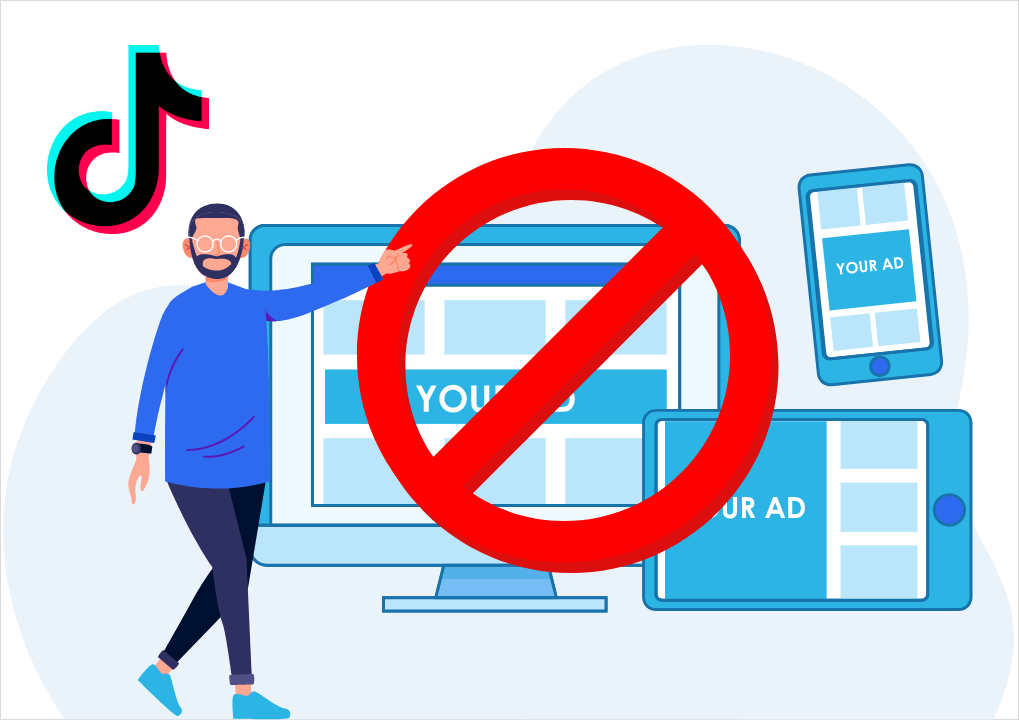TikTok recently announced that it is banning ads on–wait for it, or perhaps I should say, “weight for it”–weight loss products. Har, har.
So, TikTok has a list of reasons why, and they all sound great: they’re doing their part in their fight against body shaming. That’s great.
But any long-time reader of this site knows that part of my worldview is that nothing is what it seems on the surface. So, what could be TikTok’s real motivation? Excuse me when I cough when a billion-dollar company announces that it is sacrificing profit in the name of helping the world. My cough isn’t a criticism–if I were a billion-dollar company, I might be doing the same!–just more a comment on how the world works, not how I want it to work.
Here are a few possible explanations for what is causing TikTok to ban ads for weight loss products:
One: perhaps they calculated that the publicity they would get from banning it is worth more to them than the amount of money they would get from weight-loss ads.
Two: perhaps they calculated that the elevation of their brand–with fewer low-class, cheesy ads–is worth more to the value of the company than the amount they got from weight-loss ads.
Three: perhaps they have advanced knowledge, or perhaps merely a prediction, that weight loss ads are going to be banned all around. So, they’re hoping to score some points from being ahead of the curve, preparing for this early.
Four: perhaps they have an agreement with a government entity that is substantially incentivizing them to remove such weight-loss ads, for health reasons.
Fifth: perhaps they calculated that these weight-loss ads have substantially less user engagement than their other categories of ads. So, they want to focus on ads that increase user engagement because that will result in them making more money.
Sixth: perhaps there were various lawsuits regarding people who binge-diet-ed and had disastrous health results as a result, so this is a secret negotiation from a lawsuit settlement.
Seventh: perhaps their lawyers strongly advised them to do so, for other undeclared reasons.
Eighth: do you have any ideas?
But all of this leads up to a question: how should PPCs who use TikTok’s young ad platform react to this?
In short, you only have two options: remove your weight loss ads… but make the weight-loss ads on TikTok more subtle.
Let’s talk about the second option since the first option is fairly straightforward (if you have to remove your ads, remove them!). When you make regulations against types of ads, that doesn’t remove them, it forces the ad creators to be less obvious about it.
Perhaps they will create “memes” about weight loss. Perhaps they will start controversies about weight loss (which thus virally get people arguing about the issues). Perhaps they create non-profits that promote certain ideas and certain agendas regarding weight loss. The ads won’t go away; they’ll just become increasingly hard to detect.
Here is what is most surprising about this situation: TikTok is still such a young and immature ad platform. These sorts of requirements usually happen when a platform is mature. No one would be surprised if Adwords / Google Ads did this. But TikTok? Most PPCs don’t even know that their platform exists!
Maybe this is all just a publicity stunt to get the industry talking about their ad platform. “There’s no such thing as bad publicity” as the old line goes. Better to have people angry at your previously-unknown ad platform than to not have them know of its existence at all.
And the best thing about a publicity stunt such as this? Quiet reversals. No, silent reversals! In six months, they can quietly lift the ban, and they will have still gotten all the coolness points for it, and only lost a few months of possible revenue. The headlines now give them kudos for the news, but the silent reversal will either be unmentioned in the same tech media or hidden on page D-29 of the newspaper. But not here, we’ll continue analyzing the public info to try to figure out what is happening underneath. Note to self-check back in a few months to see how it goes–and in fact, it’s likely they don’t even publicly declare it anywhere, they just stop disabling weight-loss ads, so you can just do it yourself. The best part about that is, if it is ever discovered and exposed, their response writes itself, “Oh, sorry, it’s a bug!”.






